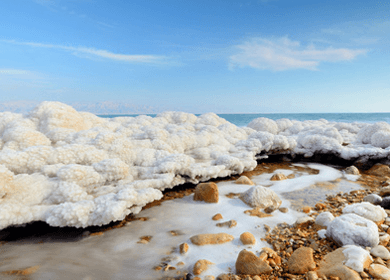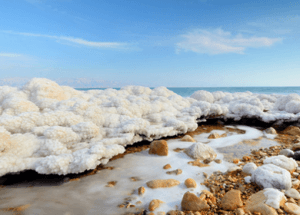
Many people avoid all salt with the idea that any form of salt is bad for them and can lead to potentially dangerous health problems. However, not all forms of salt are bad for you and, in fact, salt holds vital nutrients that are important in maintaining good health.
Table Salt
The type of salt that has gained a bad reputation for all salt is table salt. This is the form of salt that is most often found in many homes, but it is entirely commercially produced. Table salt is a manmade refined product. The refining process removes many of the vital nutrients that naturally occur in salt and adds several chemicals in the process. The list of chemical additives includes: fluoride, chemical bleach, potassium iodide, monosodium glutamate (MSG), sodium bicarbonate and solo-co-aluminate.
Table salt is associated with a wide range of significant health problems. It has been pointed to as a contributor to high blood pressure and weight gain. It is also thought to contribute to developing type 2 diabetes, gout and water retention or edema. Table salt can also contribute to muscle spasms and cramps as it dehydrates the body. It is also thought to contribute to affect mood and be a factor in depression and anxiety.
 Sea Salt
Sea Salt
By contrast, sea salt is a naturally occurring mineral. It is harvested from evaporated sea water and is only heated by the sun as it dries. No trace minerals are lost in the process of making sea salt. Trace minerals contained in sea salt include: sulphur, calcium, sodium, magnesium, silicon, boron, potassium, bromine and strontium.
Sea salt also has many health benefits in addition to providing necessary trace minerals. It can help with weight loss efforts, sooth irritated skin and reduce asthma symptoms. Regular consumption of sea salt can also improve blood sugar levels and regulate heart health. Sea salt also improves mood and can help with muscle cramps and treat dehydration.
Salt is necessary for healthy living and it is possible to become ill from lack of healthy salt in the diet. Although consuming tablespoons of salt is not recommended, adding sea salt to your food can be a good way to get the needed trace minerals your body needs to thrive. Instead of eating processed foods that are full of manmade table salt additives, consider adding a dash of sea salt for flavor to steamed vegetables and entrees for flavor.
Do you find it hard to give up salt in your food? Were you aware of the difference between table salt and sea salt? Which do you use at home?
– The Alternative Daily
When shopping for sea salt, look for an unrefined sea salt. Unrefined sea salt retains all the natural minerals your body needs. The only sea salt we use in our kitchen is from Ava Jane’s Kitchen. Learn more and receive a special offer today!

